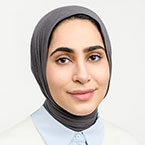By: Anthony Porto, MD, MPH, FAAP & Sarah Abu-Alreesh, MD, FAAP
Now that your little one has become a more independent toddler, they can eat the same food as the rest of the family. This helps make meals a shared and enjoyable family experience.
Here are tips and a sample menu to provide your 2-year-old the nutrition they need.
How much does a 2-year-old need to eat?
By
age two, your child should be eating three healthy meals a day, plus one or two
snacks. An average 2-year-old needs about 1,000 to 1,400 calories a day, based on their level of activity.
It is important to not make mealtimes a
battle, though. Try not to fixate on the amount of food that your child eats at one meal; instead, focus on their overall
growth and how much they eat over the course of a week.
A typical daily menu for a 2-year-old includes:
You can try different recipes to include these food groups and suggested portions. Whenever possible, offer your child finger foods instead of soft ones that require a fork or spoon to eat.
(See "Feeding & Nutrition Tips for Your 2-Year-Old.")
What should a 2-year-old drink?
Plain milk and water are your best
beverage choices. Now that your child is 2 years old, they can transition from whole milk to low fat milk or skim milk (no fat milk). If your child has a milk allergy, or you decide to use a milk alternative, be sure to read the label. It is important to choose one that has similar levels of calories and protein and added vitamins.
(See "Cow's Milk Alternatives.")
Sample menu for a 2-year-old
Note: This menu is planned for a 2-year-old child who weighs about 27 pounds (12.5 kg). To convert these amounts to milliliters (mL), see below.
Breakfast
½ cup nonfat or low-fat milk
½ cup iron- fortified, whole-grain, low-sugar cereal or 1 slice whole-grain toast
⅓ cup fruit (for example, banana, cut-up cantaloupe or strawberries)
- 1 egg
Morning snack
Lunch
½ cup milk
½ sandwich: 1 slice whole-grain bread, 1 ounce meat or fish, slice of cheese, veggie (avocado, lettuce or tomato)
2 - 3 carrot sticks (cut up or cooked until soft) or 2 tablespoons other yellow or green vegetable
½ cup fruit (such as berries)
Afternoon snack
½ cup milk or ½ cup of yogurt mixed with 1 tablespoon of nut butter
½ apple (thinly sliced), 3 prunes,
⅓ cup grapes (cut up) or ½ orange
Dinner
½ cup milk or yogurt
2 ounces fish, meat or cooked beans
⅓ cup whole-grain pasta, rice or potato
⅓ cup vegetables
*Quick conversions
1 tablespoon = 3 teaspoons (15 mL)
1 tablespoon = ½ ounce (15 mL)
1 ounce = 30 mL
1 cup = 8 ounces (240 mL)
More information
About Dr. Porto
 Anthony Porto, MD, MPH, FAAP is a board-certified pediatrician and board-certified pediatric gastroenterologist. He is an Associate Professor of Pediatrics and Associate Clinical Chief of Pediatric Gastroenterology at Yale University and Director, Pediatric Gastroenterology at Greenwich Hospital in Greenwich, CT. He is also the medical director of the Yale Pediatric Celiac Program. Within the American Academy of Pediatrics (AAP), Dr. Porto sits on the PREP Gastroenterology Advisory Board and is a member of the Section on Gastroenterology, Hepatology and Nutrition. He is also a member of the North American Society of Pediatric Gastroenterology, Hepatology and Nutrition's Public Education Committee, a pediatric expert on nutrition for The Bump's
Real Answers, and is the co-author of
The Pediatrician's Guide to Feeding Babies and Toddlers. You can follow him on Instagram
@Pediatriciansguide.
Anthony Porto, MD, MPH, FAAP is a board-certified pediatrician and board-certified pediatric gastroenterologist. He is an Associate Professor of Pediatrics and Associate Clinical Chief of Pediatric Gastroenterology at Yale University and Director, Pediatric Gastroenterology at Greenwich Hospital in Greenwich, CT. He is also the medical director of the Yale Pediatric Celiac Program. Within the American Academy of Pediatrics (AAP), Dr. Porto sits on the PREP Gastroenterology Advisory Board and is a member of the Section on Gastroenterology, Hepatology and Nutrition. He is also a member of the North American Society of Pediatric Gastroenterology, Hepatology and Nutrition's Public Education Committee, a pediatric expert on nutrition for The Bump's
Real Answers, and is the co-author of
The Pediatrician's Guide to Feeding Babies and Toddlers. You can follow him on Instagram
@Pediatriciansguide.
About Dr. Abu-Alreesh
 Sarah Abu-Alreesh, MD, FAAP, is a
Pediatric Gastroenterology, Hepatology and Nutrition Fellow at Yale University School of Medicine. Within the AAP, Dr. Abu-Alreesh is a member of the Section on Gastroenterology, Hepatology and Nutrition and the Section on Obesity. Sarah Abu-Alreesh, MD, FAAP, is a
Pediatric Gastroenterology, Hepatology and Nutrition Fellow at Yale University School of Medicine. Within the AAP, Dr. Abu-Alreesh is a member of the Section on Gastroenterology, Hepatology and Nutrition and the Section on Obesity. |